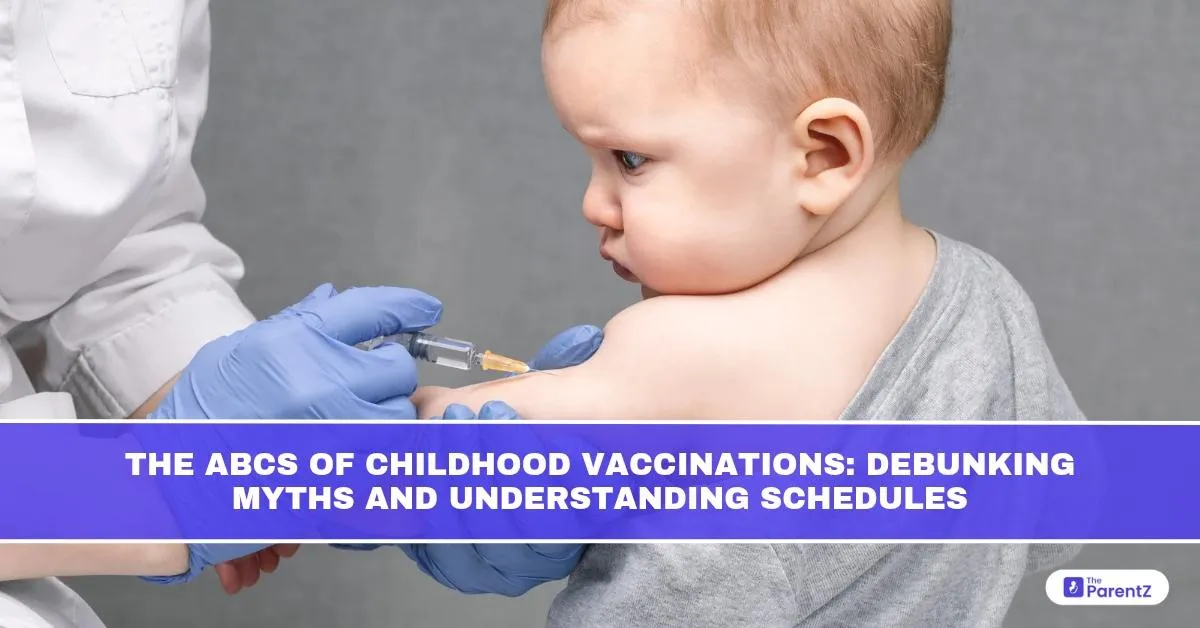Vaccines protect your child from serious diseases, yet myths often confuse parents. Here’s a clear, medically accurate guide to childhood vaccinations: what they are, why they matter, and what to expect.
A Simple Truth: Vaccines Save Lives
As parents, one of the most powerful decisions you’ll make for your child’s health is whether to follow the recommended vaccination schedule. Yet, with so many opinions online, it’s easy to feel confused, anxious, or even doubtful.
Let’s make it simple.
Vaccines are not just a medical routine; they are a shield. A shield that protects your child from illnesses that once caused widespread deaths or disabilities. And no, they are not “too many, too soon.” They’re timed just right.
This article is based on evidence from trusted medical sources like PubMed, the NHS, and peer-reviewed journals in pediatric immunology. No jargon, no fear, just facts that help you protect your child with confidence.
What Are Vaccines, Really?
A vaccine teaches the immune system how to fight off certain infections. It contains either a weakened, inactivated, or harmless part of the germ (like a virus or bacteria). When the body sees this, it learns to defend against it. Later, if the real infection shows up, your child’s immune system is ready.
Vaccines are like practice rounds for your child’s immune army.
They don’t overload the system. Even with multiple vaccines, your child’s body can handle thousands of germs a day, far more than what vaccines contain.
What the Schedule Means (and Why Timing Matters)
The childhood immunisation schedule isn’t random. It’s carefully planned to protect children when they are most vulnerable. Babies’ immune systems are still developing, which is why some vaccines are given as early as 6 weeks of age.
According to global health guidelines (NHS, WHO, and the Indian Academy of Pediatrics):
- The first few months cover key vaccines against diseases like polio, diphtheria, hepatitis B, Haemophilus influenzae B, and rotavirus.
- Around 9–12 months, the MMR vaccine protects against measles, mumps, and rubella.
- Booster doses are given later to keep immunity strong.
These vaccines are spaced out in such a way that the immune system can respond effectively, and no protection is delayed unnecessarily.
Skipping or delaying doses means your child remains exposed to dangerous infections during critical periods.
Common Myths and the Truth Behind Them
Myth 1: Too Many Vaccines Can Overload My Baby’s Immune System
Truth: Not true. From the day your child is born, they are exposed to countless microbes on your skin, in breast milk, and in the air. Vaccines use a tiny, safe amount of antigens (the active part) and are carefully tested for safety.
Myth 2: Natural Immunity Is Better Than Vaccination
Truth: While natural infection can create immunity, it often comes at a serious cost. For example, measles can cause pneumonia, brain damage, or death. Vaccines offer protection without the risk of complications.
Myth 3: Vaccines Cause Autism
Truth: This is one of the most widely debunked myths. Large studies in multiple countries, including data from PubMed and the British Medical Journal, have found no link between vaccines and autism.
Myth 4: If Other Kids Are Vaccinated, Mine Doesn’t Need It
Truth: Herd immunity works only when enough people are vaccinated. If too many parents skip vaccines, diseases can return. We’ve seen this happen with measles outbreaks in Europe and even parts of the U.S. and India.
Are Vaccines Safe?
Yes. Before a vaccine is approved, it goes through years of testing. After approval, it’s continuously monitored. Common side effects are usually mild, like swelling at the injection site or mild fever, and go away in a day or two.
Serious side effects are extremely rare, less than 1 in a million doses, according to NHS safety reports and studies on vaccine adverse events published on PubMed.
Remember: The risks from the disease itself are much higher than the risks from the vaccine.
What Happens If You Delay or Skip Vaccines?
Delaying vaccines can:
- Leave your child unprotected during the highest-risk age groups.
- Increase the spread of infections in your community.
- Complicate future travel, school admissions, or medical treatments.
Diseases like diphtheria, measles, and pertussis (whooping cough) are making a comeback in areas with falling vaccination rates.
What to Expect at a Vaccination Visit
It’s normal to feel anxious. Here’s what typically happens:
- The doctor checks your child’s general health.
- Vaccines are given as injections or oral drops.
- You’ll be advised on what mild side effects to expect (such as fussiness or low-grade fever).
- You may be asked to stay for 15–30 minutes after the shot, just to monitor for any reactions (which are rare).
Bring your child’s vaccination card to track their doses and schedule the next one. This card becomes important later for school and health records.
Real-Life Example: What Happened When Vaccines Were Delayed
In 2022, a measles outbreak in Maharashtra affected dozens of children, mostly in areas where vaccine coverage had dropped during the pandemic. Many of these children were under 5 and had missed their routine shots.
Doctors observed severe complications, including pneumonia and brain inflammation, in cases that could have been prevented.
This is not fear-mongering. It’s reality. Diseases we thought were gone can come back when vaccination gaps appear.
What You Can Do as a Parent
- Stick to the schedule. Don’t wait until there’s an outbreak.
- Talk to your pediatrician if you’re unsure. Ask questions. Clear doubts.
- Don’t fall for misinformation online or on WhatsApp. Trust verified sources like your doctor, the NHS, WHO, or the Indian Academy of Pediatrics.
- Keep your records updated. This avoids confusion during school or emergencies.
- Calm your child during the visit. Bring a toy, hold their hand, feed them after. Your reassurance matters more than you think.
Final Words: Protecting Childhood, One Shot at a Time
Vaccines are not about ticking a box on a health card. They are about giving your child the chance to grow up safe, healthy, and protected.
You wouldn’t think twice about locking your front door at night to protect your family. Vaccines work the same way, only the danger isn’t always visible.
With every shot, you are giving your child more than protection; you’re giving them a future.
Let’s choose facts over fear. Let’s vaccinate with confidence.





Be the first one to comment on this story.